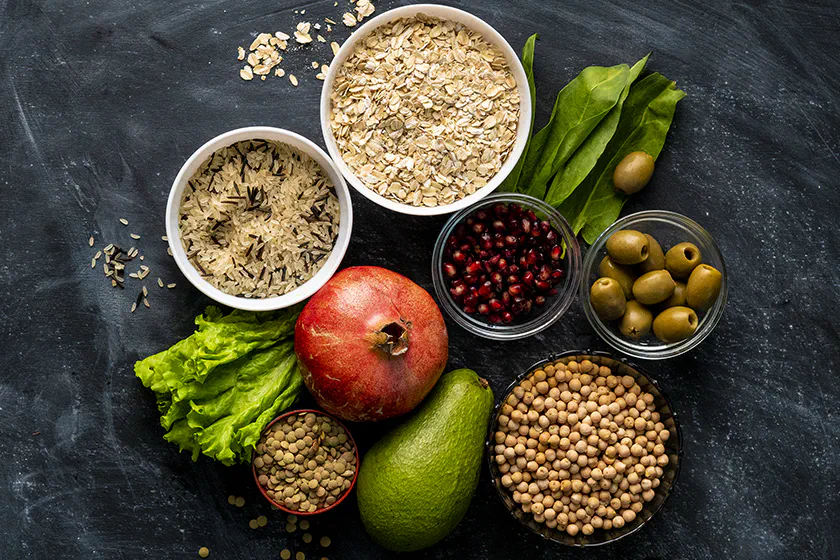Fiber and Weight Loss: The Natural Solution That Works

Fiber is one of the best tools for achieving weight loss that is sustainable for the long term. Fiber is an essential component of a healthy diet because it promotes fullness, supports digestion, and eliminates toxins from the body. Understanding the different types of fiber and incorporating more high-fiber foods into your meals can make a big difference in your weight loss journey.
What is Fiber and Why Aren’t People Getting Enough?
Fiber is a type of carbohydrate that the body can’t fully digest and contributes zero calories. Unlike other carbs that break down into sugar, fiber passes through the digestive system intact, helping to regulate digestion and keep you feeling full longer. Because of this, fiber plays a crucial role in gut health, weight management, and disease prevention.
Despite its importance, most people don’t get enough fiber in their diet. The recommended daily intake is 25 grams for women and 38 grams for men. However, the average person only consumes about 15 grams daily! This is largely due to the rise in processed, low-fiber foods like white bread, fast food, and sugary snacks. Increasing fiber intake through whole, plant-based foods can make a significant difference in your health and weight loss efforts.
The Two Types of Fiber: Soluble vs Insoluble
Not all fiber is the same—there are two main types, each with its own unique properties and benefits:
Soluble Fiber (Slows Digestion and Lowers Cholesterol)
Think of soluble fiber as a sticky gel or glob of Silly Putty in your digestive system. When you eat foods rich in soluble fiber, they absorb water and form a gel-like substance in your gut. Just like Silly Putty picks up dust and dirt when you press it onto a surface, this gel traps excess cholesterol, sugars, and waste and pushes it out of the body in your next bowel movement. By trapping these toxins and eliminating them from the body, you prevent them from being fully absorbed into the bloodstream.
Aside from removing waste products, this bulky gel-like substance keeps you feeling full longer as it moves through your digestive system. In turn, it stabilizes blood sugar, prevents overeating, and reduces cravings. This makes soluble fiber a key player when it comes to weight management and heart health.
Best Sources of Soluble Fiber
- Oats
- Beans and lentils
- Chia seeds and flaxseeds
- Apples, oranges, and pears
- Carrots
- Sweet potatoes
- Brussels sprouts
Insoluble Fiber (Supports Digestion and Gut Health)
If soluble fiber is like a sticky glob of Silly Putty, then insoluble fiber is like a broom sweeping through your digestive system. It doesn’t dissolve in water or turn into gel; instead, it adds bulk to your stool and helps push waste through your intestines more efficiently—just like a broom cleaning out debris.
This type of fiber tends to have more of a laxative effect on the body. It helps prevent constipation and keep your digestive system running smoothly. By promoting regular bowel movements, insoluble fiber supports gut health and prevents gastrointestinal discomfort like bloating or sluggish digestion.
Best Sources of Insoluble Fiber
- Whole grains (brown rice, whole wheat, quinoa)
- Wheat bran
- Leafy greens
- Nuts and seeds
- Berries
- Broccoli and cauliflower
- Zucchini
- Beans and legumes
- Skins of many fruits and vegetables
How Fiber Supports Weight Loss
Increasing your fiber intake can assist with weight loss in several ways:
- Promotes feelings of fullness: High-fiber foods take longer to digest, which keeps you feeling full for longer and reduces cravings.
- Regulates blood sugar: Soluble fiber slows sugar absorption, preventing spikes and crashes that lead to hunger.
- Removes excess cholesterol: Fiber binds to cholesterol in the digestive tract and helps eliminate it from the body.
- Aids in detoxification: Fiber helps eliminate toxins and waste products from the body before they have a chance to be absorbed.
The Bottom Line
Fiber is a powerful tool for weight loss and heart health, yet so many people don’t get enough of it. By incorporating both soluble and insoluble fiber from whole foods, you can stay fuller for longer, reduce cravings, regulate blood sugar, improve digestion, and remove toxins from your body.
Instead of focusing solely on calories, try to prioritize adding more fiber-rich foods to your diet. This will naturally lead to better portion control, reduced cravings, and sustainable weight loss.
Jordana Tobelem, RD, LDN, is a Registered Dietitian passionate about empowering individuals to reach their full potential through nutrition education. Drawing on her clinical dietetics background, she offers consulting services to a variety of healthcare brands and organizations. Jordana stays up to date with the latest nutrition research to develop impactful content for her clients. She holds dual academic degrees in Business and Dietetics.



